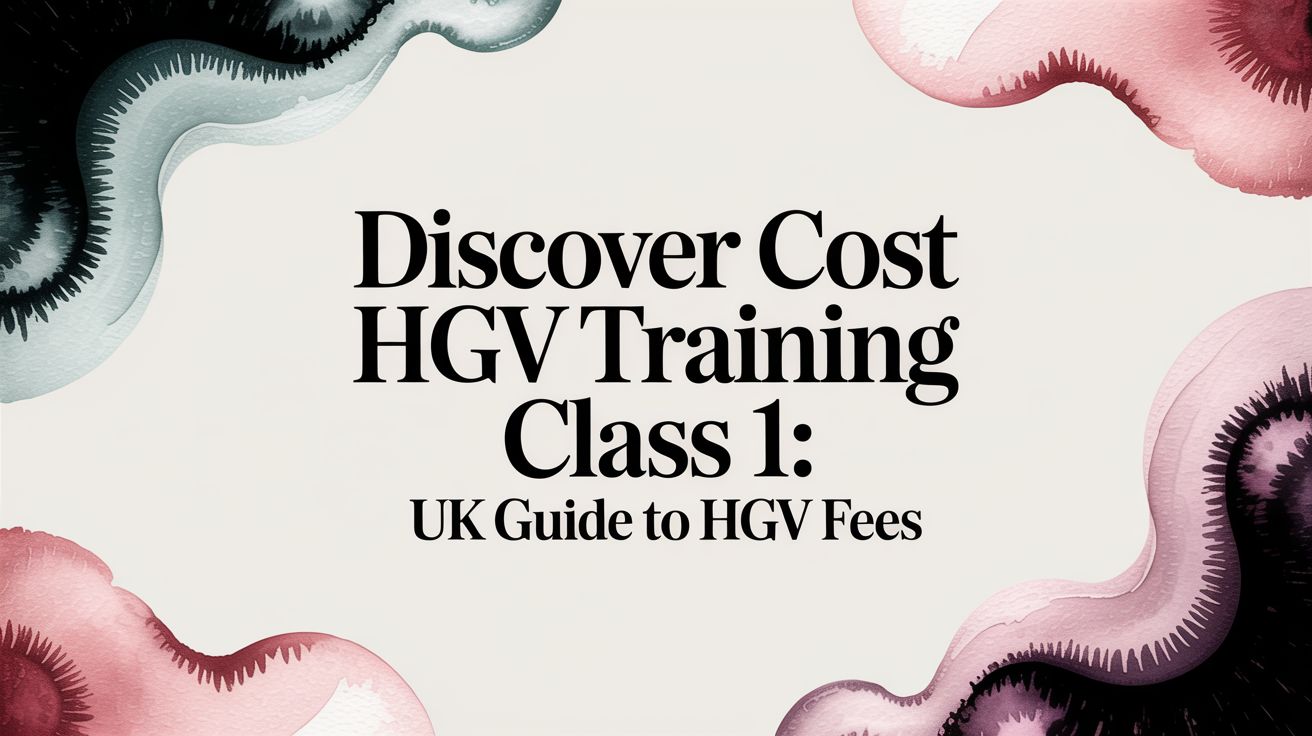Related Articles

09/02/2026
How to Find Lorry Driver Jobs Near Me: A Practical UK Guide


Before you can legally drive a heavy goods vehicle (HGV) in the UK, you must meet specific medical standards to ensure you’re fit to operate large and potentially hazardous vehicles. The HGV medical check is a crucial part of the licensing process, and it applies to both new drivers applying for their first HGV licence and experienced drivers renewing their entitlement. In this guide, we break down everything you need to know about the HGV medical check, including what’s involved, how to prepare, and how HGV Learning supports drivers through the process.
A doctor assesses your physical and mental health during the HGV medical check to determine if you’re fit to drive professionally. It ensures that drivers are safe to operate heavy goods vehicles on public roads. The medical check must be carried out by a registered doctor and involves a full review of your health and medical history.
The check helps prevent accidents by identifying conditions like poor vision, epilepsy, or cardiovascular problems early. If you’re applying for a Category C, C1, or C+E licence, passing an HGV medical check is mandatory. Drivers in these categories must demonstrate that they are physically capable of handling long shifts and reacting appropriately to sudden traffic situations.
You’ll need to complete an HGV medical check in the following situations:
Track your renewal date and book your medical check early to avoid disruptions in your ability to work. Delays in submitting your D4 form to the DVLA can lead to disqualification from driving professionally until your new licence is issued.
The HGV medical check is completed using the DVLA D4 form, which must be filled in by a doctor. The assessment includes:
The appointment usually lasts 15 to 30 minutes. Afterward, your doctor submits the completed D4 form to the DVLA.
An HGV medical check must be carried out by a registered GP or a private doctor. Some companies specialise in driver medicals and may offer more flexible appointment times or faster turnaround. You don’t have to use your NHS GP – many drivers choose private providers for convenience.
Be sure to bring photo ID, a list of any medications you’re taking, and your glasses or contact lenses if you use them. It’s also helpful to bring a completed D4 form if you’ve already filled out your personal details. Keeping an up-to-date medical history summary with you can also speed up the process.
Once your doctor has completed the D4 form, you’ll need to submit it to the DVLA along with your HGV provisional or renewal application. If everything is in order, the DVLA will process your application and send your updated licence by post.
In some cases, the DVLA may request additional information from your GP or refer you for further assessment with a medical specialist. This doesn’t mean you’ve failed. The DVLA just wants to confirm you meet the medical standards.
Make sure your D4 form is completed legibly and accurately, as any errors can delay the application process. If you’re unsure about any part of the form, ask your doctor or a member of the HGV Learning team for assistance.
We understand that the licensing process can be daunting, especially if it’s your first time going through it. That’s why we offer full support to help you book your HGV medical check, complete your paperwork, and stay on track with your training.
We can recommend trusted medical providers and help you schedule your appointment early in your training journey. Our team also provides guidance on completing the D4 form correctly to avoid delays. If further medical documentation is needed, we can help you understand what to expect and how to respond to DVLA requests.
For more details on the steps required to become a qualified driver, see our guide on how to get an HGV licence.
What if I wear glasses? You can still pass the HGV medical check if you wear glasses or contact lenses, provided your vision meets the required standard.
What if I have a medical condition? Many conditions are not automatic disqualifiers. The DVLA will assess your case individually. Providing accurate and honest information is important.
Do I need to pay for the medical check? Yes, the medical is not covered by the NHS. Prices vary depending on whether you go through your GP or a private clinic.
How often do I need another check? After age 45, you’ll need a medical check every 5 years. After age 65, this becomes an annual requirement.
Can I drive while waiting for my medical check results? In most cases, if you’re renewing your licence and you submit your application before the expiry date, you may be allowed to drive under Section 88 of the Road Traffic Act while the DVLA processes your renewal.
The HGV medical check isn’t just a formality; it’s a vital safeguard for the safety of all road users. Ensuring your fitness to drive means fewer risks and greater peace of mind for employers, insurers, and yourself. While the steps may seem technical, the process is clear and manageable with the right guidance.
HGV Learning is here to guide you through every step, including helping you book and prepare for your HGV medical check. Get in touch with us today to start your training with confidence.

09/02/2026

Complete the form below and we’ll contact you asap.

